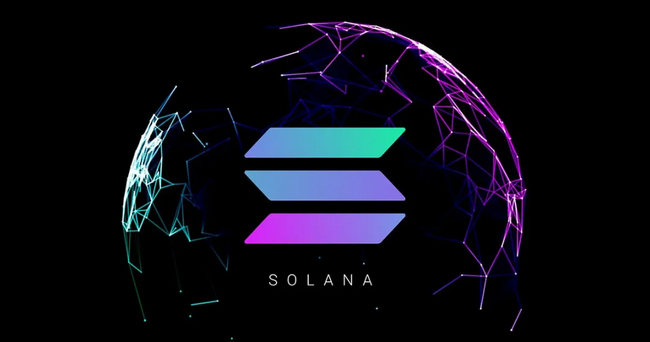-
 Bitcoin
Bitcoin $83,822.4170
1.13% -
 Ethereum
Ethereum $1,813.6102
1.14% -
 Tether USDt
Tether USDt $0.9998
0.01% -
 XRP
XRP $2.1222
3.18% -
 BNB
BNB $596.3480
0.70% -
 Solana
Solana $120.9540
4.53% -
 USDC
USDC $1.0001
0.01% -
 Dogecoin
Dogecoin $0.1701
5.09% -
 Cardano
Cardano $0.6610
1.76% -
 TRON
TRON $0.2385
-0.20% -
 UNUS SED LEO
UNUS SED LEO $9.1952
-3.85% -
 Chainlink
Chainlink $12.9099
0.96% -
 Toncoin
Toncoin $3.3204
-5.86% -
 Stellar
Stellar $0.2592
-0.36% -
 Avalanche
Avalanche $18.1903
0.62% -
 Sui
Sui $2.2467
2.06% -
 Shiba Inu
Shiba Inu $0.0...01234
1.62% -
 Hedera
Hedera $0.1632
0.53% -
 Litecoin
Litecoin $84.5521
1.58% -
 Polkadot
Polkadot $4.0326
0.22% -
 MANTRA
MANTRA $6.2623
-1.67% -
 Bitcoin Cash
Bitcoin Cash $300.9068
-0.19% -
 Bitget Token
Bitget Token $4.5289
1.12% -
 Dai
Dai $1.0001
0.01% -
 Ethena USDe
Ethena USDe $0.9991
-0.03% -
 Hyperliquid
Hyperliquid $12.0972
2.83% -
 Monero
Monero $216.6391
1.04% -
 Uniswap
Uniswap $5.8853
0.50% -
 Pi
Pi $0.4789
-15.16% -
 OKB
OKB $51.0001
8.81%
how to buy solana without kyc
Purchasing Solana (SOL) anonymously is feasible through decentralized exchanges (DEXs) like Raydium and Orca, crypto ATMs that don't require KYC for small transactions, or privacy-focused wallets that connect to these platforms.
Nov 12, 2024 at 11:48 am

How to Buy Solana Without KYC
Introduction
Solana (SOL) is a fast, scalable blockchain platform that supports a wide range of decentralized applications (dApps). While KYC (Know Your Customer) regulations are becoming increasingly common in the crypto industry, there are still several ways to buy Solana without providing personal identification. This guide will cover various methods for purchasing SOL anonymously, ensuring privacy and minimizing regulatory hurdles.
1. Over-the-Counter (OTC) Trading
- OTC trading involves buying and selling SOL directly with another individual or entity, typically through a private negotiation.
- This method offers anonymity as there is no centralized exchange or intermediary involved.
- However, OTC trading can be more complex, time-consuming, and potentially expose you to risks such as counterparty default or scams.
2. Decentralized Exchanges (DEXs)
- DEXs are peer-to-peer marketplaces where users can buy and sell cryptocurrencies without the need for an intermediary.
- Some DEXs do not require KYC, allowing users to purchase SOL anonymously.
- Examples of DEXs that support SOL without KYC include Raydium and Orca.
3. Crypto ATMs
- Crypto ATMs are physical kiosks that allow you to buy cryptocurrencies, including SOL, using cash.
- Most crypto ATMs do not require KYC verification for small transaction amounts.
- However, be aware that transaction fees and withdrawal limits may vary.
4. Instant Exchange Services
- Instant exchange services offer a convenient way to buy SOL by exchanging other cryptocurrencies or fiat currency.
- These services typically do not require KYC for small transactions but may impose limits on daily or monthly exchange volumes.
- Examples of instant exchange services include Changelly and ChangeNOW.
5. P2P Marketplaces
- P2P marketplaces connect buyers and sellers of cryptocurrencies, allowing anonymous transactions.
- Platforms like LocalBitcoins and Binance P2P offer the option to buy SOL without KYC for small amounts.
- Exercise caution when using P2P marketplaces to avoid scams or payment disputes.
6. Privacy-Focused Wallets
- Privacy-focused wallets, such as Exodus and Atomic Wallet, allow you to buy SOL anonymously by integrating with DEXs or OTC platforms.
- These wallets support non-custodial storage, meaning you control your private keys and assets.
- Be aware that some privacy-focused wallets may have limited exchange options or higher fees.
Steps to Buy Solana Without KYC Using a Privacy-Focused Wallet and DEX
- Acquire a Privacy-Focused Wallet: Install a privacy-focused wallet such as Exodus or Atomic Wallet on your device.
- Deposit Funds: Fund your wallet with a privacy coin like Monero (XMR) or a cryptocurrency that does not require KYC to purchase, such as Bitcoin (BTC).
- Connect to a DEX: Within the wallet, connect to a DEX like Raydium or Orca that supports SOL and allows non-KYC trading.
- Exchange Funds: Swap your privacy coin or non-KYC cryptocurrency for SOL.
- Withdraw SOL: Withdraw your purchased SOL to a separate, secure wallet for storage.
Additional Considerations
- Transaction Limits: Be aware of any transaction limits or verification requirements imposed by the specific method you choose.
- Security: Prioritize security by using reputable platforms, storing your SOL in secure wallets, and practicing good digital hygiene.
- Anonymity and Privacy: While these methods allow for anonymity, remember that blockchain transactions are recorded publicly. Mixing services or tumblers can further enhance privacy.
- Legal Compliance: Be aware of the legal implications and regulatory requirements in your jurisdiction regarding cryptocurrency purchases without KYC.
Disclaimer:info@kdj.com
The information provided is not trading advice. kdj.com does not assume any responsibility for any investments made based on the information provided in this article. Cryptocurrencies are highly volatile and it is highly recommended that you invest with caution after thorough research!
If you believe that the content used on this website infringes your copyright, please contact us immediately (info@kdj.com) and we will delete it promptly.
- GreeksLive has highlighted this signal from the Bitcoin options market. An enormous block trade has awoken the cryptocurrency market.
- 2025-04-05 11:20:12
- Grayscale Files to Convert Its Digital Large Cap Fund Into a Spot Cryptocurrency ETF
- 2025-04-05 11:20:12
- Avalanche's AVAX Token Is Poised for Major Gains, Outpacing Bitcoin and Ether: Standard Chartered
- 2025-04-05 11:15:12
- Mutuum Finance (MUTM) Surges as Investor Interest Grows
- 2025-04-05 11:15:12
- 3 Top Cryptos to Buy Right Now and 1 Project That Will 100x by 2025
- 2025-04-05 11:10:12
- Introducing Jupiter VERIFY, a Community-Driven Verification System Designed to Enhance Transparency and Security
- 2025-04-05 11:10:12
Related knowledge

What is Ethereum’s Slashing mechanism and how to punish malicious behavior?
Feb 20,2025 at 03:08am
Key PointsOverview of slashingDifferent types of slashing in EthereumIncentives and consequences of slashingIdentifying and reporting slashed validatorsOngoing discussions and potential improvementsEthereum's Slashing Mechanism: Punishing Malicious BehaviorEthereum's slashing mechanism is an essential tool for ensuring network security and punishing mal...

What is the verifier node of Ethereum and how to become a verifier?
Feb 19,2025 at 06:00pm
The Verifier Node of Ethereum: A Comprehensive GuideKey Points:What is a Verifier Node?How to Become a Verifier NodeResponsibilities and Rewards of a Verifier NodeMinimum Requirements for Becoming a Verifier NodePotential Difficulties in Running a Verifier Node1. What is a Verifier Node?A Verifier Node is an independent entity on the Ethereum network th...

What is Ethereum’s staking, and how to participate and earn money?
Feb 19,2025 at 04:37pm
Key Points:Understanding Ethereum's Staking MechanismSteps to Participate in StakingBenefits and Rewards of StakingSecurity and Risk ConsiderationsTechnical Requirements and Hardware OptionsPotential Challenges and Troubleshooting TipsFAQs on Ethereum StakingWhat is Ethereum's Staking?Proof-of-Stake (PoS) is a consensus mechanism used in blockchain netw...

What is Ethereum’s DAO (Decentralized Autonomous Organization) and how does it work?
Feb 20,2025 at 03:12am
Key PointsDefinition and Structure of a DAOGovernance and Decision-Making in DAOsBenefits and Use Cases of DAOsChallenges and Limitations of DAOsWhat is Ethereum's DAO (Decentralized Autonomous Organization) and How Does It Work?Definition and Structure of a DAOA Decentralized Autonomous Organization (DAO) is an innovative governance and management fram...

What is Ethereum's multi-signature wallet and how to improve security?
Feb 20,2025 at 02:18pm
Key Points:Understanding the Concept of a Multi-Signature WalletBenefits and Drawbacks of Multisig WalletsRequirements for Setting Up a Multisig WalletStep-by-Step Guide to Generating a Multisig WalletImplementing Strategies for Enhanced Security1. Understanding the Concept of a Multi-Signature WalletA multi-signature (multisig) wallet in the Ethereum e...

What is Ethereum's oracle and how to provide data for smart contracts?
Feb 21,2025 at 01:30am
Key Points:Understanding the concept of oracles in EthereumExploring different types of oraclesDetailed guide on how to provide data for smart contractsAddressing potential challenges and considerationsWhat is Ethereum's Oracle?Oracles are crucial components in the Ethereum ecosystem, enabling smart contracts to access real-world data and off-chain even...

What is Ethereum’s Slashing mechanism and how to punish malicious behavior?
Feb 20,2025 at 03:08am
Key PointsOverview of slashingDifferent types of slashing in EthereumIncentives and consequences of slashingIdentifying and reporting slashed validatorsOngoing discussions and potential improvementsEthereum's Slashing Mechanism: Punishing Malicious BehaviorEthereum's slashing mechanism is an essential tool for ensuring network security and punishing mal...

What is the verifier node of Ethereum and how to become a verifier?
Feb 19,2025 at 06:00pm
The Verifier Node of Ethereum: A Comprehensive GuideKey Points:What is a Verifier Node?How to Become a Verifier NodeResponsibilities and Rewards of a Verifier NodeMinimum Requirements for Becoming a Verifier NodePotential Difficulties in Running a Verifier Node1. What is a Verifier Node?A Verifier Node is an independent entity on the Ethereum network th...

What is Ethereum’s staking, and how to participate and earn money?
Feb 19,2025 at 04:37pm
Key Points:Understanding Ethereum's Staking MechanismSteps to Participate in StakingBenefits and Rewards of StakingSecurity and Risk ConsiderationsTechnical Requirements and Hardware OptionsPotential Challenges and Troubleshooting TipsFAQs on Ethereum StakingWhat is Ethereum's Staking?Proof-of-Stake (PoS) is a consensus mechanism used in blockchain netw...

What is Ethereum’s DAO (Decentralized Autonomous Organization) and how does it work?
Feb 20,2025 at 03:12am
Key PointsDefinition and Structure of a DAOGovernance and Decision-Making in DAOsBenefits and Use Cases of DAOsChallenges and Limitations of DAOsWhat is Ethereum's DAO (Decentralized Autonomous Organization) and How Does It Work?Definition and Structure of a DAOA Decentralized Autonomous Organization (DAO) is an innovative governance and management fram...

What is Ethereum's multi-signature wallet and how to improve security?
Feb 20,2025 at 02:18pm
Key Points:Understanding the Concept of a Multi-Signature WalletBenefits and Drawbacks of Multisig WalletsRequirements for Setting Up a Multisig WalletStep-by-Step Guide to Generating a Multisig WalletImplementing Strategies for Enhanced Security1. Understanding the Concept of a Multi-Signature WalletA multi-signature (multisig) wallet in the Ethereum e...

What is Ethereum's oracle and how to provide data for smart contracts?
Feb 21,2025 at 01:30am
Key Points:Understanding the concept of oracles in EthereumExploring different types of oraclesDetailed guide on how to provide data for smart contractsAddressing potential challenges and considerationsWhat is Ethereum's Oracle?Oracles are crucial components in the Ethereum ecosystem, enabling smart contracts to access real-world data and off-chain even...
See all articles




















































































